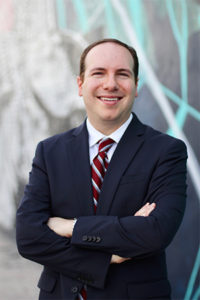Sexual Harassment Beyond the Office

The #MeToo movement brought much-needed attention to the serious issue of sexual harassment in the workplace.
Despite the #MeToo movement spotlight, employees still experience work-related sexual harassment—even sexual assault—in and outside of the workplace. There are even instances where employees are subjected to unlawful sexual harassment in professional work environments, such as law firms or doctors’ offices. Sometimes, sexual harassment in the workplace goes unreported because employees fear that they may be fired or retaliated against for reporting the harassment.
No matter the work environment, both federal and Florida laws prohibit workplace discrimination on the basis of sex, including unlawful sexual harassment. Further, both federal and Florida laws prohibit employers from retaliating against employees who report or complain about workplace sexual harassment.
In this blog post, we will discuss the federal and Florida laws prohibiting workplace sexual harassment, and we will provide examples of what unlawful sexual harassment may look like. For more help, contact a Miami sexual harassment lawyer at BT Law Group.
Laws Prohibiting Sexual Harassment
Title VII of the Civil Rights Act of 1964 (Title VII) is a federal law that prohibits workplace discrimination on the basis of race, color, religion, sex, and national origin. Under Title VII, unlawful sex discrimination includes sexual harassment.
The Florida Civil Rights Act (FCRA) is the Florida law that prohibits workplace discrimination on the basis of race, color, religion, sex, pregnancy, national origin, age, handicap, or marital status. As with Title VII, unlawful sex discrimination under the FCRA includes sexual harassment.
Both Title VII and the FCRA generally apply to employers with 15 or more employees. Further, both Title VII and the FCRA are gender-neutral laws, meaning that the laws prohibit unlawful sexual harassment of any covered employee regardless of their sex.
Additionally, under Title VII and the FCRA, covered employers are prohibited from retaliating or taking adverse employment actions against employees because the employee complained about, reported, or participated in an investigation regarding workplace sexual harassment.
Unlawful retaliation (or adverse employment actions) includes:
- Termination of employment
- Demotion
- Reduction in pay
- Denial of promotion
- Denial of job benefits
- Suspension without pay
What Constitutes Sexual Harassment?
Unwelcome sexual advances, requests for sexual favors, and other verbal, physical, or visual harassment of a sexual nature are deemed sexual harassment by law. A harasser may be an employee’s supervisor, a supervisor in another area or department, a co-worker, or a non-employee.
Workplace sexual harassment takes many forms, such as:
- Inappropriate comments about an employee’s body, clothing, or personal or sex life
- Making sexually suggestive or provocative jokes
- Making sexist remarks
- Making sexually suggestive or offensive gestures
- Making jokes or comments about an employee’s sexual orientation
- Sharing pornographic or sexually suggestive images, content, or material
- Repeated requests for dates or sexual favors
- Inappropriate and/or unwanted touching, such as hugging, kissing, or stroking
- Unwelcome or unwanted sexual activity or pursuit
- Making romantic efforts with an employee who has clearly expressed disinterest
- Making employment contingent on sexual acts or being in a relationship
- Stalking
- Actual or attempted sexual assault and rape
Whether or not certain conduct rises to the level of unlawful sexual harassment depends on the severity and/or pervasiveness of the conduct, and the conduct must contribute to an intimidating, abusive, or hostile work environment.
For example, a single unwelcome comment or joke may not be severe or pervasive enough to rise to the level of actionable or unlawful sexual harassment. However, where such workplace behavior is pervasive or persistent, this may rise to the level of unlawful sexual harassment. Additionally, the severity of a single act may be sufficient to constitute illegal sexual harassment, such as in the case of sexual assault or rape.
Can Unlawful Sexual Harassment Occur Outside of the Office or Workplace?
Unlawful sexual harassment can occur outside of the workplace at off-site work functions or events, such as company parties or events at restaurants, bars, and other off-site locations.
Examples of Unlawful Sexual Harassment Outside of Work
A young female attends a business dinner after work at a restaurant with several coworkers and managers. The employee, her coworkers, and managers all enjoy several glasses of wine. Immediately following the dinner, one of the male managers, with whom the employee works, follows the female employee to her car and sexually assaults her. Following the assault, the employee is afraid to report the male manager out of fear that the manager may fire her or spread rumors about her to the company.
In this extreme case, the company (as the employer) may be responsible for the manager’s assault and could be found to have violated Title VII and the FCRA because the assault occurred at a work-related function, if the employee reported it, and the employer failed to prevent it.
In another example, a male engineer works for an engineering firm and works under several supervisors. Soon after beginning employment with the engineering firm, one of the engineer’s supervisors asks the engineer out on a date. The engineer politely but clearly declines the offer.
Despite the engineer’s clear disinterest, the supervisor proceeds to text the engineer after work hours, continuing to ask the engineer on dates and sending sexually suggestive memes and images. The engineer becomes uncomfortable but ignores the texts. The supervisor then starts to send inappropriate text messages on the hour, every hour throughout the day to the point where the engineer is unable to complete his work because of the distraction and his discomfort with the supervisor.
In this case, the supervisor’s actions could rise to the level of unlawful sexual harassment if reported. Further, the engineering firm (as the employer) may be responsible for the supervisor’s actions in violation of Title VII and the FCRA for failing to prevent or correct the harassing behavior.
A third example could be if a supervisor threatens to demote or withhold a bonus from, an employee if that employee does not engage in sexual relations with the supervisor. This quid pro quo is another form of sexual harassment that could support a claim under Title VII and the FCRA.
What Can an Employee Do If They Are the Victim of Sexual Harassment?
Florida employees who are victims of unlawful sexual harassment should report the harassing conduct to their employer so that the employer can stop the harassment and take necessary steps to prevent any future harassment. Employees may consult their employer’s sexual harassment policy on how to report complaints of sexual harassment.
In cases where an employee has reported unlawful sexual harassment to their employer, but the employer has failed to take prompt remedial actions, the employee may have grounds to file a charge of discrimination and pursue legal action against their employer for unlawful sexual harassment and/or retaliation.
Contact BT Law Group Today
Florida employees who believe they have been sexually harassed or subjected to unlawful retaliation in the workplace should consult with a Florida sexual harassment attorney who can evaluate the employee’s claims and advise the employee on possible courses of action.
Contact us today to schedule your consultation.
 BT Law Group is an employment law firm in Miami, FL, founded by attorneys Jason D. Berkowitz and Anisley Tarragona. With a wealth of experience in various legal areas, they represent clients in various legal matters, including discrimination, unpaid wages, wrongful termination, management counseling, and other cases.
BT Law Group is an employment law firm in Miami, FL, founded by attorneys Jason D. Berkowitz and Anisley Tarragona. With a wealth of experience in various legal areas, they represent clients in various legal matters, including discrimination, unpaid wages, wrongful termination, management counseling, and other cases.

